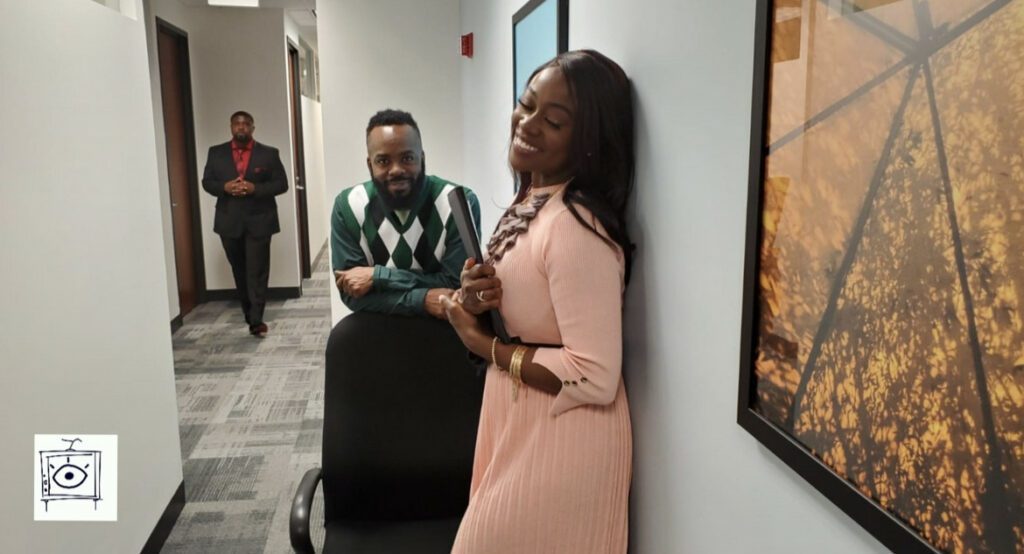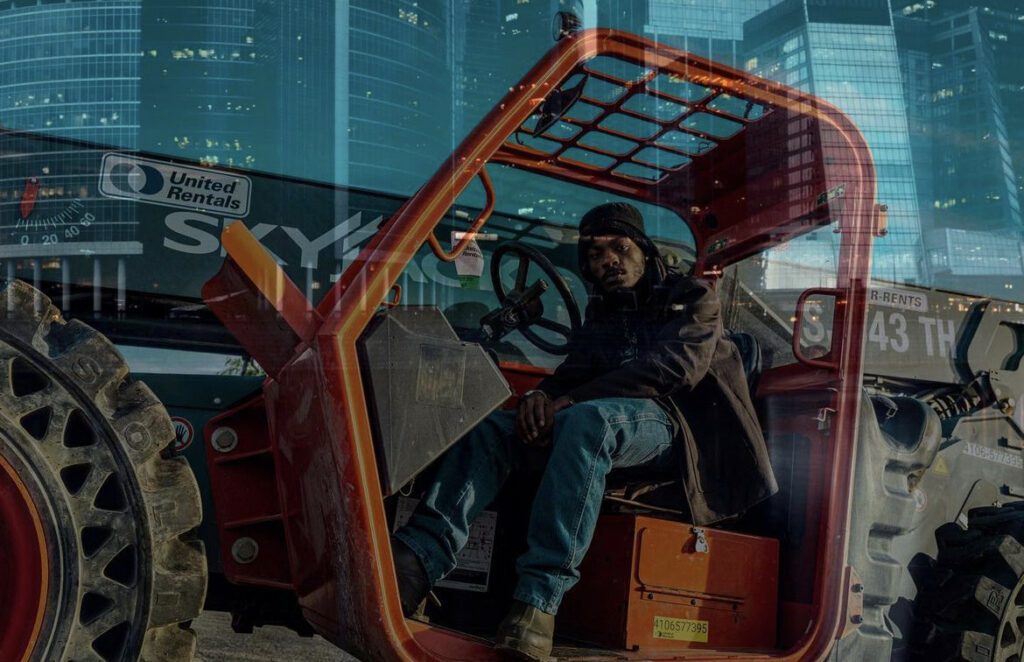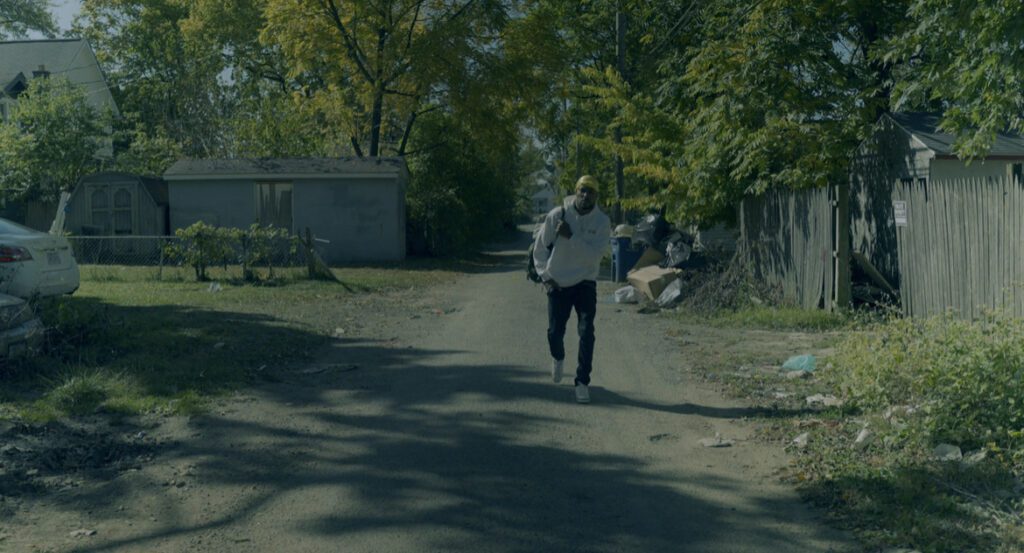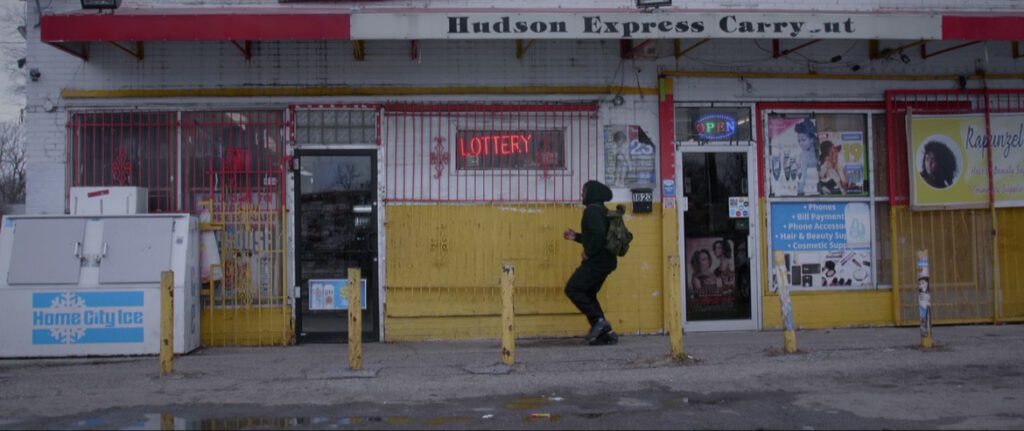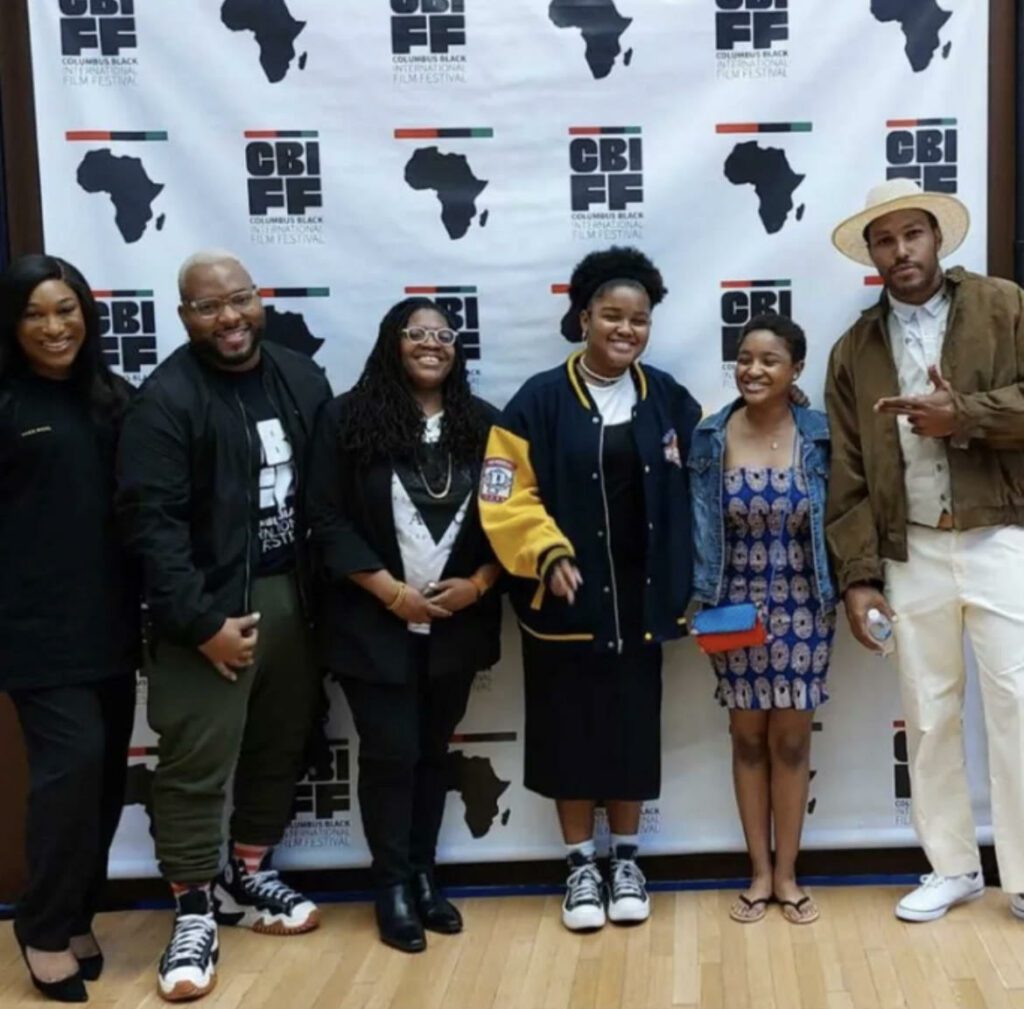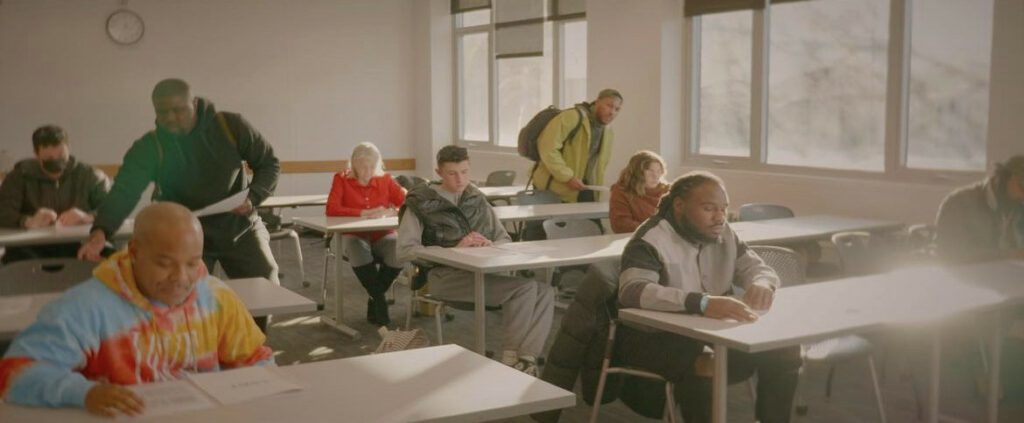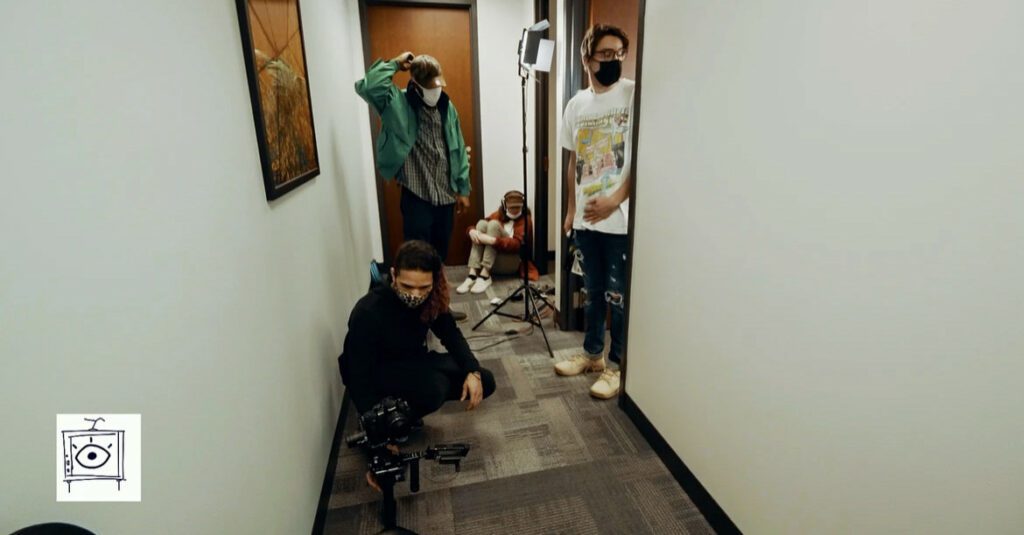Howdy! This article is part of our new feature here on Filmmaking Lifestyle called “How They Did It.”
We look at successful filmmakers and videographers, ask them questions, and find out how they started & grew their careers in film production or video.
Today, we interview Carl Lee, owner and director of All Eyes Productions.
1. Your Background
My background in film and video can be traced back to the origins of my creative writing. As a child, I was always fascinated by stories, as early as I can remember.
As an avid reader, I was often enthralled by how a good book could transport you into a different world through its story. I was a very imaginative kid and already had a propensity to find ways to express that creativity, whether it was through music or art, such as painting or clay.
I attended an art elementary school named Duxberry Park Elementary. By the time I reached 4th grade, I had already started writing poetry, inspired by the songs I would listen to.
Later on, in my 5th grade year, I delved into creative writing, and even won a couple of writing competitions, which led to me giving my class’s graduation speech.
Over time, my love for creative writing grew, and by high school, I had notebook pages filled with ideas. I even contemplated a couple of novel ideas that may still come to fruition in the future.
I had a teacher who taught me the importance of not only understanding structured writing techniques but also writing freely.
The worst thing a person can do when creatively writing is to overthink it. Following that, it wasn’t until probably my last year at Lane College in Tennessee that I truly felt a desire to pursue filmmaking.
While visiting home, I watched the award-winning film “Fruitvale Station” directed by Ryan Coogler, and it was the first time I realized how someone like me could harness the power of filmmaking.
The power to make people feel something visceral, even though they’re just looking at a screen.
Upon my return to school, I felt a strong desire to explore this passion further. The Greek and Roman drama and Literary analysis classes I took as electives only strengthened that desire. With that passion, I started writing my first feature screenplay, titled “Johnny’s Cave.”
Knowing I needed time to do so, I took the liberty of attempting the production of my first short film. I used friends as my cast, along with their homes as my locations. It was a learning process, especially in the directing department, as I was working with artists with no acting experience.
As time went on, I moved back home to Columbus, OH. This move was unexpected, as I had plans to move to California. I felt I should make the most out of where I was. I continued to craft my feature film and attempted to produce it myself.
While writing it, I decided to shoot a couple more short films, also making money doing videography/photography work on the side.
With that, I decided to create a company behind it since I had diversified my services. This is when I founded my production company, All Eyes Productions.
Attempting to produce “Johnny’s Cave,” my feature screenplay, proved to be much more challenging than I had imagined my first time as a filmmaker would be.
I had references like Robert Rodriguez’s debut “Mariachi” and Christopher Nolan’s “The Following,” both done on little to no budgets.
However, I hadn’t factored in the state of the industry at the moment, so I underestimated the budget I needed to complete the film in the best form possible. Still, using a mix of experienced actors and friends, I created something.
What also played a large role was getting the right crew talent around me, which is essential in completing any film worth watching.
Unfortunately, the film was never completed due to budget deficiencies, but what the experience served as was my film school. As a self-taught filmmaker, that was as good as it gets.
Fast forward to now, I have a few feature screenplays and a plethora of short film ideas. In addition to that, I have completed numerous short films, music videos, photoshoots, etc., some even award-winning, all under my production company.
I’ve also assisted with several other projects with creators and organizations.
2. About The Company
“All Eyes Productions (AEP) is a multi-platform production company that strives to bring unique visions to the forefront of your eyes. It all started with just a camera, an idea, and the drive to create it.
After years of working with and for many other talented creators and organizations, All Eyes Productions has morphed into an incubator for a large spectrum of creations.
AEP has wholly produced a variety of projects, some of which include our internationally recognized films such as “ILL PART I” & “II”, “Running For Something”, “Johnny’s Cave” and more, with our ventures expanding into other projects like music videos and conceptual photoshoots, as well as a plethora of commercial, documentary, and branding content.
We’ve greatly enjoyed the experience of working with many, both from across the street (Columbus, OH) and across the world (France, United Kingdom, etc.). We look forward to continuing this fellowship with our ever-growing network.
3. Coming Up With The Idea
The idea behind All Eyes Productions came from wanting to be intentional about the unique stories that are told. The concept of “All Eyes” represents both “all” views and “all” creators, essentially leaving the door open for limitless creation.
It has allowed me to see and experience the beauty that art can bring to your life when you extend your hand to its limits and possibilities.
I set out to tell unique stories through visual and verbal mediums while simultaneously shedding light on parts of the black people’s experience that for so long existed in the shadows but rarely on the big screen etc.
Telling these stories can be challenging, especially when you don’t know how they’ll be perceived by people who may not have the same experience.
One of the biggest challenges, however, was the lack of resources. As I mentioned regarding my feature film exploration, it is difficult to create art on a low budget, specifically film at a certain standard.
This proved to be a significant challenge for me, but what I learned from it is that there is always a way to create. Even if you must build off the idea, never let the idea go.
When you have it, it’s for a reason, so it’s never a good idea to give up too early. If you can’t create the idea to the degree you desire, produce a smaller version of it.
If you can’t afford to do that, then at least get it down on paper. It’s important to be resilient and let the passion of the project drive you.
That’s why it’s also crucial to mostly work on projects that inspire you; otherwise, you will lose inspiration very early.”
4. How Did You Grow The Business?
All Eyes Productions has very grassroots beginnings and grew mainly by branching out. Building real-life relationships with people proved to be the most natural way to grow the business and its client base.
Once you have these relationships, using them as opportunities to build lasting experiences ensures that people will desire to work with you and your company again. I also took pride in doing so at the best quality I could manage.
The growth of my business was contingent on its ability to diversify its services, spanning many elements of multimedia.
While this is true, it’s also great to hone in on one or two strengths and become well-versed in those.
Finding investors and other businesses that trust your vision for their brands is a lucrative way to maximize both the creative and monetized aspects of the business.
5. Lessons Learned Along The Way
“The journey has been long and interesting, and many lessons come to mind. One of the biggest lessons I’ve learned is to never limit your creativity.
It can be intimidating to pursue your dreams, and sometimes it won’t always look like the most sensible path to walk upon. It’s always important to remember not just the ‘what’ and ‘how’ but the ‘why’ of being a filmmaker, entrepreneur, or anything below and beyond.
The ‘why’ is what will carry you through the doubts, confusion, as well as the many obstacles that beset such ambitions.
The ‘why’ will prevent others from putting your creativity in a box, helping secure your confidence in what you set out to do.
Another lesson I’ve learned along the way is to always try to make others around you better as you continue to grow in your craft yourself.
Becoming a valuable asset not just monetarily, but intangibly, will ensure that you have the best experiences.
Whether it be creating your own projects or collaborating with other teams, having solid individuals that value you as a professional and as a person, and vice versa, builds long-lasting relationships that you can carry with you throughout your career and lifetime.
People don’t forget great timestamps in their lives. Forging that kind of union with others is a great way to gain experience while also doing things you love.
6. Recommended Tools
Great tools to use in filmmaking and business include some of the following:
–Adobe Creative Cloud(Premiere Pro, Lightroom,
-Davinci Resolve(Editing, Color Grading)
–Final Draft/Celtx(For Screenplays, Pre-production)
-Google Docs(for treatments)
-etc.
-Local grants for creatives in your area
7. Recommended Books & Resources
-“In the Blink of an Eye” by Walter Murch: This book delves into film editing and provides valuable insights for filmmakers.
-“Rebel Without a Crew” by Robert Rodriguez: A fantastic read for aspiring filmmakers, detailing Rodriguez’s experiences making his first feature film on a shoestring budget.
-“On Directing Film” by David Mamet: This book offers a concise and insightful guide to the essentials of directing for film.
-“Making Movies” by Sidney Lumet: Lumet, a renowned director, shares his knowledge and experiences, offering practical advice on various aspects of filmmaking.
-“The Five C’s of Cinematography” by Joseph V. Mascelli: A classic in cinematography, this book covers the fundamental principles of visual storytelling.
-“The Filmmaker’s Handbook” by Steven Ascher and Edward Pincus: A comprehensive resource covering all aspects of filmmaking, from pre-production to post-production.
8. Advice For Those Starting Out In Filmmaking Or Video Production?
Advice I would give to those starting out in filmmaking or video production includes an array of elements.
One is to establish what exactly you hope to accomplish in the industry. Coming to that conclusion isn’t just about money or notoriety but also identity.
Who and what you want to be is a very important thing to establish early on.
After that, find what roles you can fill to accomplish that.
Once you do that, find people who are doing similar things and try to work with them. It’s even better when you find people who are doing those things at a high level; ask them as many questions as they’re willing to answer.
Keep doing that and try to create with those two groups of people as much as possible. If you have problems finding those people, work on becoming that person/organization yourself. The internet is full of reference points if you need to know what that looks like.
Never let someone limit the scope of what you hope to accomplish in the industry because that will set the tone for how you start and continue your career.
Remember that it’s all a journey and process, which will prove to be a test of patience. Remaining resilient and true to your vision will serve you well.Studying the greats wouldn’t hurt either!
Carl owns All Eyes Productions, so feel free to check out his work and what he’s doing!
Editor’s Note: If you’d like to be featured in our “How I Made It” section on the site, drop us an email.

